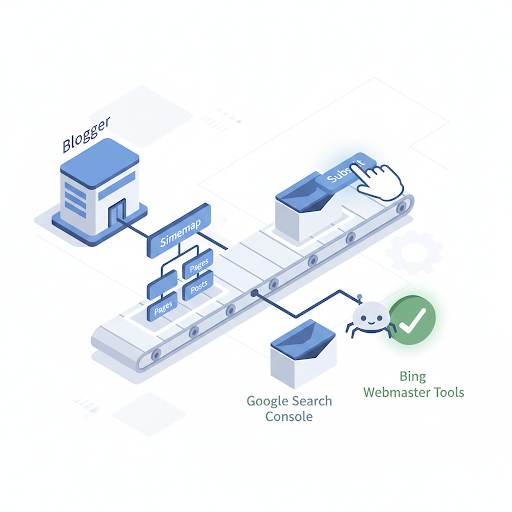How to Do Keyword Research (Even If You’re a Total Beginner)

If you’re new to blogging or just started learning about SEO, the term “keyword research” might sound confusing or technical.
But don’t worry — I’m going to break it down in the easiest way possible.
In this post, you’ll learn exactly how to do keyword research, why it matters, and how it helps you get more visitors to your blog.
Even if you’ve never done it before, you’ll leave with a clear plan.
Let’s get into it.
What Is Keyword Research?

Keyword research is all about finding out what people are typing into Google when they’re looking for answers, ideas, or help.
Instead of guessing what to write about, keyword research helps you discover what your audience is already searching for.
It’s how you make sure your content gets found — not buried.
Why It Matters (Especially for Beginners)
When you skip keyword research, you’re basically writing in the dark.
But when you take the time to find the right keywords:
- You write blog posts people actually want to read
- You show up in search results
- You get more traffic, more clicks, and more trust
If you want people to find your blog through Google, this is where it starts.
What Most New Bloggers Get Wrong
Let’s clear this up right away.
Keyword research isn’t about using fancy tools or stuffing keywords everywhere.
It’s about understanding your readers and writing content that matches what they’re looking for.

Here are common mistakes to avoid:
- Choosing keywords just because they have high search volume
- Ignoring what people really want when they search
- Writing without checking if anyone is searching for the topic
Now let me show you how to do it the easy way.
How to Do Keyword Research (Step-by-Step)
1. Start With a Simple Topic
Think of something you want to write about.
Don’t overthink it.
Example: You want to write about “blogging tips.”
That’s your basic topic — or what’s called a seed keyword.
2. Think Like a Real Person (Not a Robot)
Ask yourself:
- If I wanted to learn this, what would I search on Google?
- What exact words or questions would I type?
Example:
- “How to start a blog and make money”
- “Blogging tips for beginners”
- “How to write a good blog post”
These are real keywords people are probably using right now.
3. Use Free Tools to Find More Ideas

Here are some tools that make keyword research simple:
- Google Search Suggestions – Just start typing your topic and see what pops up.
- AnswerThePublic – Shows common questions people ask.
- Ubersuggest – Gives you search volume and keyword ideas.
- Google Trends – Helps you see if the keyword is getting more popular.
Play around with your topic, and see what related keywords come up.
Look for longer, more specific keywords — they’re easier to rank for.
4. Check If the Keyword Is Too Competitive
You don’t want to compete with huge websites, especially if your blog is new.
Here’s a simple trick:
- Search your keyword in Google
- Look at the first page results
- Are big websites (like Wikipedia or HubSpot) ranking?
- Or are smaller blogs like yours showing up?
If smaller blogs are ranking, that’s a good sign.
You can compete!
5. Understand the Reason Behind the Search
This part is important — it’s called search intent.
It means: Why is someone searching for this keyword?
For example:
If they search “best blogging tools,” they might want a list of tools to use.
If they search “how to start a blog,” they want a step-by-step guide.
Your post needs to match what they expect.
Don’t write about tools when they want a tutorial.
6. Choose One Main Keyword + A Few Related Ones
Now it’s time to pick your keyword.
Choose:
One main keyword – This is the focus of your post
Two or three related keywords – These support your content and help it rank better
Example:
Main keyword: how to do keyword research
Related: beginner keyword research tips, SEO for bloggers, blog traffic tips
Use your main keyword in:
- The blog post title
- The first 100 words
- One or two subheadings
- Naturally in the content (don’t force it)
Quick Tips to Make It Work Better
- ✅ Don’t focus only on search volume. Go for keywords with low competition but real search intent.
- ✅ Look for questions people ask — and answer them clearly.
- ✅ Use keywords naturally — write for real people, not search engines.
- ✅ Make sure your post is actually helpful. Google notices when people stay and read.
How Long Should This Take?
Honestly, it doesn’t have to take hours.
Once you practice a few times, you’ll be able to find great keywords in 15–20 minutes.
It’s a small step that makes a huge difference in your blog’s success.

Final Thoughts
If you’re just starting your blogging journey, learning how to do keyword research is one of the smartest things you can do.
You don’t need fancy tools.
You don’t need to be an SEO expert.
All you need is a bit of curiosity, a few smart questions, and the tools I just shared.
Remember:
> Write for people first.
Use keywords to help them find you.
Now go find that next great blog post idea — and give your content the audience it deserves.
Recommended Posts to Read Next:
👉 How to Use Long Tail Keywords to Boost Your Blog Traffic in 2026
👉 What Is a Blogging Brand? (And Why You Need One)
👉 How to Join the Right Blogging Community (And Why It Matters)





